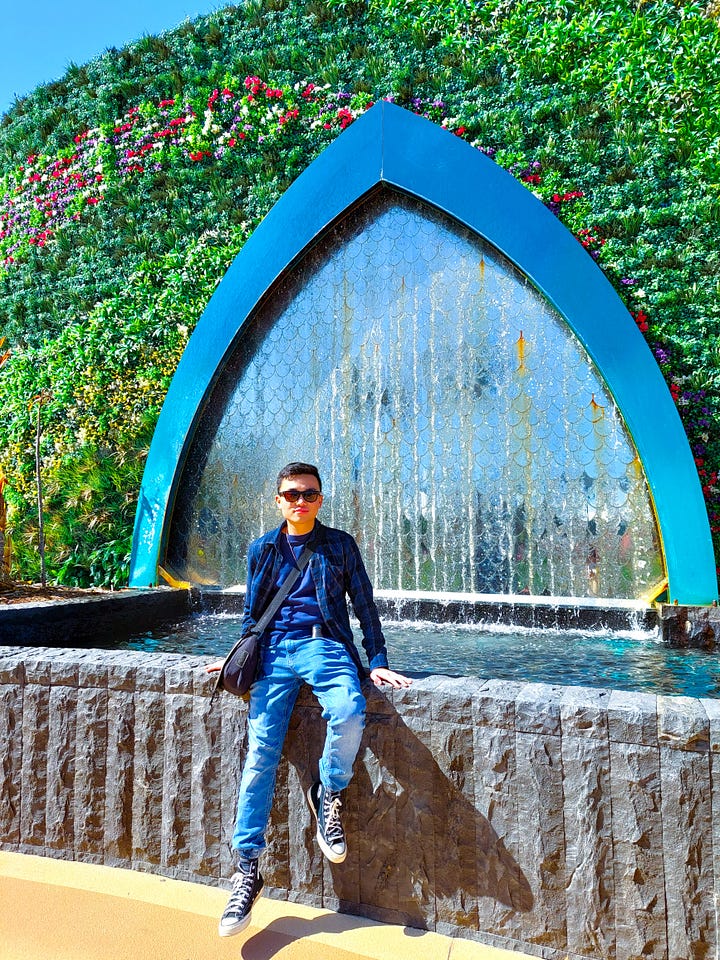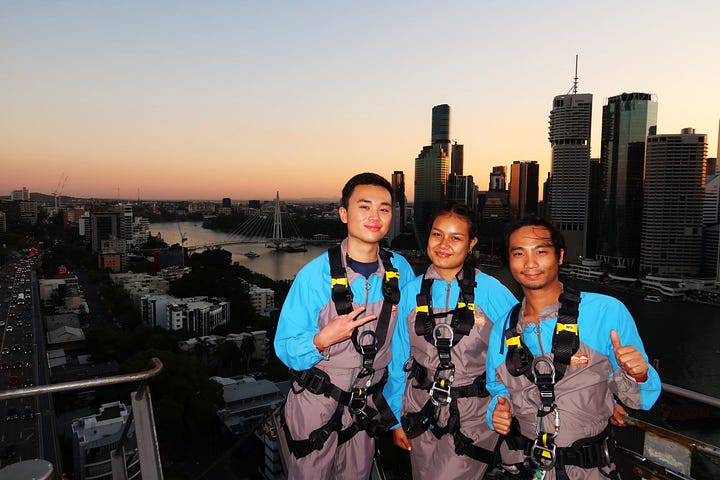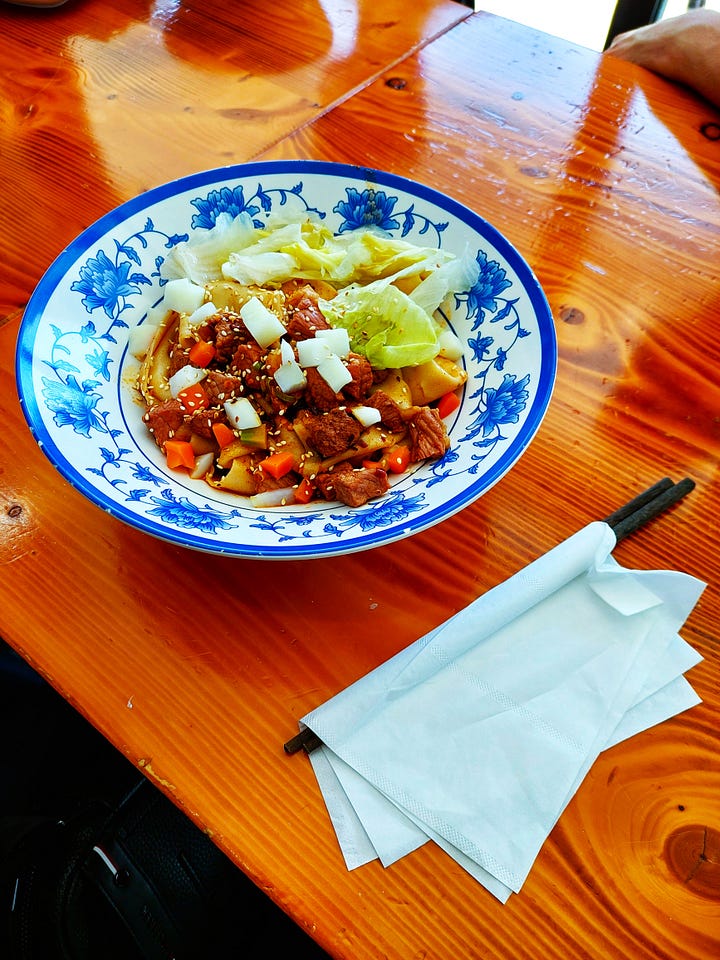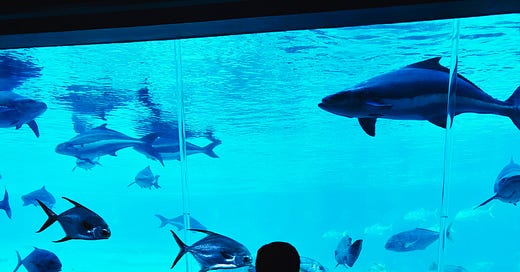I've just finished my second trimester of the Bachelor of Medical Science at Griffith University, and let's say it's been a rollercoaster compared to Trimester 1.
I'll discuss each of the five courses I've taken this trimester and my overall experience over the past three months.
ANATOMY AND PHYSIOLOGY SYSTEMS II 🫀
Once again, my favourite course this trimester, and of the whole degree so far. I actually enjoyed the content more than APS1, and I think it's because physiology is one of the topics I'm most passionate and eager to learn about, and APS2 was physiology-focused (whereas APS1 was anatomy-focused).
Learning: I appreciated the mix of practicums, where I looked at the anatomy of various organ systems, and labs, which were centred around physiology activities and clinical skills, such as using a sphygmomanometer to measure blood pressure, listening to Korotkoff sounds with a stethoscope, and carrying out simulations of heart and lung function using computer software. I had the same demonstrators as APS1, and it was great to continue working with them and develop a closer rapport (one of them has just finished the Doctor of Medicine and became an officially qualified doctor, which was very exciting news and further motivated me to keep working hard within this medical pathway). Workshops, once again, were highly informative and significantly helpful for the mid-trimester and final exams.
Assessments: The assessment structure is exactly the same as APS1, with two practical exams and a mid-trimester exam before the final exam. The difficulty was standard, and I received better scores in these assessments than APS1 (despite APS2 being objectively harder due to the physiology), hence I didn't need to score as high in the final exam this time to secure the highest grade for the course. Funny (maybe not funny) story — my bag was stolen in the library just half an hour before the second practical exam, which was really stressful for me as so many of my valuables were in it. Thankfully, I was still able to score well in that exam and I've managed to replace most of the items lost with the bag.
Final Exam: Like APS1, I felt like I performed the best in this final exam out of all five, most likely because I spent the most time preparing for this. The second-year MedSci students told us at orientation that APS2 had one of the hardest final exams in the first year, but I think it was one of the easiest out of the ten courses I've studied so far. The short-answer questions were a blessing as they were all on the topics I was strongest in, and I had plenty of time left over to check my multiple-choice answers.
CHEMISTRY 1B ⚛️
The content was a slight step up from Chemistry 1A, with physical, inorganic and organic chemistry all in this course. However, my A-Level knowledge still came in very handy, especially for physical topics like acid-base equilibria and electrochemistry, and I managed to wrap my head around new concepts like crystal field theory and R-S configurations.
Learning: I went to more lectures in Chemistry 1B than in Chemistry 1A, and they were actually more helpful because they had accompanying tutorials (even though they were so early in the morning). I regularly completed the tutorial questions before attending them, and I actually wrote notes in this course (I could easily get by without notes for Chemistry 1A). The Mastering Chemistry exercises were actually quite difficult (they were harder than any of the quizzes I had to do). Regarding labs, I completed experiments with buffers, reaction rates, UV spectrophotometry with sunscreens, aspirin synthesis (flashback to Year 12), and double salt synthesis.
Assessments: The quizzes were quite chill and didn't require a lot of critical thinking to understand the questions. Lab reports were marked more harshly this time, as the technicians actually took our lab books in to mark rather than marking them at the end of the lab session, meaning that I had to score higher in the final exam compared to Chemistry 1A.
Final Exam: Honestly, I don't think I revised enough for this exam, considering I was still feeling tired after having back-to-exam final exams for Genetics and APS2 a couple of days beforehand. It meant that I didn't practise using equations like the Nernst equation and linking galvanic cells with equilibrium constants and Gibbs free energy, which came up in the exam. Thankfully, the entire exam was multiple-choice, so I still put down an answer for every question, but I didn't feel as confident about my answers this time.
GENETICS AND EVOLUTIONARY BIOLOGY 🧬
There wasn't a lot of content in this course, but there were so many nitty-gritty details added to basic processes that I already knew (e.g. transcription, gel electrophoresis), which made the course quite hard to revise, especially leading up to the final exam.
Learning: The lectures were relatively small, so I often covered the whole week of lectures in one day to save myself time. There was a one-off two-hour lab about using UV spectrophotometry in a forensic context to investigate the biodiversity of Australian fruit flies, which I found quite interesting.
Assessments: As well as a report from the aforementioned lab, I had three quizzes leading up to the final exam, which were actually extremely difficult. In retrospect, the quiz questions were harder than the final exam.
Final Exam: Considering the technical details and specifications of techniques and processes that the lectures included, I was worried I would have to remember so much content for this exam, and having it back-to-back with APS2, the other content-heavy course this trimester, didn't help. However, the final exam was very doable, as I didn't need to deploy any knowledge of really niche numbers and names of molecules. I didn't have any time to spare, however, so I couldn't thoroughly check my answers.
STATISTICS 📈
Building on the statistics I did in A-Level Maths, this course started off relaxed and easy, but its difficulty ramped up quite fast in the second half of the trimester, and there were assignments due almost every week on top.
Learning: There was a lecture at 6pm (yes, that late) every week, which I was able to thankfully attend online, as well as fortnightly workshops, which had mini-assessments we had to submit on those days. A lot of the course centred around RStudio, a coding platform for R code, and it was definitely weird initially to get my head around navigating the different functions (because we didn't learn R from the basics; we just applied exemplar code of the different statistical tests we learned into our own projects).
Assessments: There were fortnightly workshop mini-assessments, a multiple-choice quiz about statistical testing, and a factorial ANOVA statistical report based on our projects (from a choice of four). In addition, there was a random 'professional development portfolio' worth 10% of the course, which included researching career fields and filming yourself responding to interview questions based on the most important skills in your desired career field (in my case, medicine), which were analysed and judged by AI tools.
Final Exam: This was by far the most time-pressured final exam out of the five because they actually put 120 marks' worth of questions instead of the intended 100. It meant that I missed out on the most important part of one of the biggest questions, and I didn't feel good about that. Moreover, I couldn't check any of my calculations, so I had to trust that I had correctly carried them out the first time; one mistake at the beginning could ruin the entire statistical test.
HEALTH CHALLENGES FOR THE 21ST CENTURY 😷
This course was very random but also chill as it's not conceptually difficult (you can speed run all of the online lectures in one go).
Learning: The tutorials were not tedious to attend (compared to L&E last trimester), as the convenors were actually semi-entertaining, and the activities were not too demanding (although the interprofessional learning [IPL] activities were not as effective, since almost 90% of the students were MedScis). The IPL case studies were filmed like amateur movies, and the interview transcripts were so long that I had to summarise all of them (there were twenty to go through, one for each health professional type!) for the final exam.
Assessments: There was an online weekly quiz for the first eight weeks of the trimester, which was always easy to get full marks on. There was also a written assignment worth 30%, and that gave me bad flashbacks of L&E, when my GPA was killed because of horrible marking. And the same thing almost happened, as I received a marker whose feedback and comments did not match the scores I received for the marking criteria; my score was lower than I expected. But since other MedScis told me that the convenors of the course could reconsider the feedback upon request, so I sent a quick email, and the convenor looked over my essay at 2am. When I woke up to a notification that my essay mark had been revised, I rushed to find out and saw that I received so many extra marks upon review and received a final score above what I was hoping for (I kept my expectations relatively low because of what happened in L&E). I was very pleased to say the least, and it eased the pressure coming into the final exam.
Final Exam: There was so much to write during this exam, and I hadn't been used to writing so many essays in timed conditions since GCSE English. The questions were not too hard, but coming up with relevant examples and giving equal effort to every question were not easy. My last essay was far less developed because I had misjudged my time management and left myself with half the time I originally thought I would have to write it.
WIDER EXPERIENCE 🎁
What really made this trimester a 'rollercoaster' was actually outside of my academics. I feel that my self-discipline regarding daily routines and habits has dropped a lot, and so one of my goals next trimester to get back on track and restore the everyday structure I had last trimester.
When I started receiving lots of assignments at once that were all due quite close to each other, because that didn't happen last trimester, I was not used to structuring my study timetable and daily routine to adjust to this shift in workload. Consequently, I often stayed awake late at night to complete assignments, and this started an unhealthy cycle of being too used to sleeping too little every night, to the point where I began subconsciously thinking that I don't need to sleep yet, even though I was awake far later than I should, because my brain was adjusting to this new late sleep time and making it normal. I ended up sleeping past 1am every single night, even when I didn't have as many things to work on that would justify me being awake past that time. And with the final exams, I pulled several all-nighters even when it was perfectly possible to avoid them if I had remained consistently productive throughout the day.
Sleeping so late, obviously, means that I've been waking up much later than planned, meaning I start my day having already lost hours. Skipping breakfast was a natural consequence, and I noticed my hunger levels dropping to the point where I was losing weight towards the final exams (which is in contrast to the typical stress-eating others might do when final exams come up). Since I usually like going to the gym in the mornings, too, I would either force myself to go late in the day, when the gym is much busier, or I would decide not to go at all; I feel that I haven't prioritised my fitness as much this trimester compared to the last.
That being said, I've had celebrations, too. I had my 20th birthday this trimester, which was pivotal for two reasons — I was entering a new decade of my life, and it was my first birthday away from my family. Thankfully, I had made really close MedSci friends by this point, so I was still able to have a fun celebration, and they gifted me thoughtful items. I've also celebrated six friends' birthdays this trimester, and buying tailored gifts for everyone was a lot!
As I discussed in my LinkedIn post about turning 20:
It feels weird to realise that I'm no longer a teenager and now a fully-fledged young adult. Entering a new decade of my life feels scary sometimes, and I know there will be many more expectations for me in the next ten years, whether that's to achieve full financial independence with a secure career or forge a long-term relationship.
People say that the twenties are the best time of your life, and while I hope that I will continue to make even more positive memories in this next chapter, I wonder whether that statement will be true for me. Medical school is going to take up the first half of my twenties, and I know it will be more intense, rigorous and difficult, especially when I become closer to becoming fully qualified and will have patients officially under my care.
I've also participated in many activities organised by the Student Representative Council (SRC), including ziplining in Mount Tamborine, climbing Story Bridge, go-karting, watching a bunch of films with cheap student tickets in the cinemas, visiting a cabaret for the first time, and going to Sea World. Since I know the second year of the Bachelor of Medical Science will be more intensive and harder, I tried to fit in as many social events as I could into this trimester while I still had enough time!
Earlier this month, I was selected to be the 2025 President of the Bachelor of Medical Science in Brisbane, which was really exciting news. As part of the role, I'll be organising events for next year's MedScis with my own leadership team, including mentoring schemes and orientation events, as well as liaising with the Bachelor of Medical Science leadership team on the Gold Coast to bring the two student cohorts together throughout the year, whether that's through mixers, BBQs, or beach days. To think that I was in danger of not getting into undergraduate medicine in Australia at all at the start of this year (see the final post of 'The Two-Year Application Process') to now being the face of one of the most competitive medical programs in the country is surreal, and I've definitely grown so much as a person throughout this year, both intellectually and personally.
And the last piece of exciting news to share is that by the time this post is released, I'll have already started my two-week business study tour in Vietnam with the Student Academy of Excellence. It's one of my two free-choice electives in Trimester 3, and I will explore Vietnam as a whole in different contexts, including the environment and nature, businesses, its economy, and its public infrastructure. Having received a lot of funding to go on this trip, it's a welcome change from being in lecture theatres or seminar rooms all the time, and I get to have so many new experiences. Moreover, while I have Vietnamese heritage, I've never visited the country before (due to my life-threatening allergies), so it's about time I delve more into my ethnic background and the birthplaces of my parents.




OVERALL
Trimester 2 has been a defining trimester, with so many events, experiences and lifestyle changes. And even more things are being planned for Trimester 3, so it's even more important for me to get back on track and maintain my work ethic. I've enjoyed the last three months, nevertheless, and have made so many more wonderful memories with the people I've found here this year; I hope that will still be the case in Trimester 3!
Vietnam is going to be a life-changing experience for me, especially for my personal growth and appreciation of my identity, and taking on new jobs and leadership roles will add much more responsibility to my student life. I look forward to embracing all the things waiting for me next trimester, and I'll finally be able to enjoy a much lighter workload compared to these two trimesters for once. With Christmas and the New Year fast approaching, I can't wait to spend some much-needed time with my family, especially my mother and brother whom I haven't seen in person since I left for Australia at the end of January.




